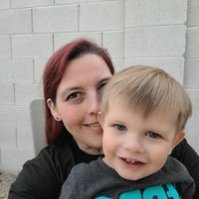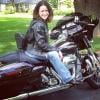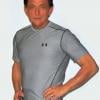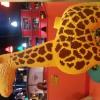Search the Community
Showing results for 'alcohol'.
Found 17,501 results
-

Let's talk about NSAIDs
Kindle replied to snowkitten's topic in POST-Operation Weight Loss Surgery Q&A
The reason we are not supposed to take NSAIDS is because of their risk of causing ulcers. With our teeny sleeves, an ulcer would be that much more dangerous to deal with and treat. It doesn't matter if it's administered orally, IV or sublingual. The systemic action of NSAIDS that relieve pain and inflammation is the same mechanism that causes ulcers... "NSAIDs work by inhibiting two enzymes, substances that cause chemical changes in the body, called COX-1 and COX-2. Both enzymes produce prostaglandins—chemicals produced in the body's cells—that promote pain, inflammation, and fever. However, unlike COX-2, COX-1 produces another type of prostaglandin that protects the stomach lining from stomach acid and helps control bleeding. By inhibiting COX-1, NSAIDs increase the risk of a peptic ulcer developing and bleeding. Many people have come to rely on NSAIDs. Some take the smallest possible dose of aspirin once a day to keep their heart healthy. Others take NSAIDs throughout the day to reduce pain and inflammation. As with all medicines, NSAIDs offer many benefits, while also carrying some risks. Doctors and patients work together to weigh the benefits and risks of using NSAIDs, even when NSAIDs have caused an ulcer. Patients who stop taking an NSAID at their doctor's request may want to resume use once they feel better. In other patients, the benefits of taking an NSAID outweigh the risks. In such cases, the doctor works with the patient to determine how an NSAID can be safely continued. Whether deciding to resume or continue using NSAIDs, patients should tell their doctor about all prescription and nonprescription medicines they take. The doctor then decides if the patient can safely use an NSAID that caused an ulcer or should switch to a different NSAID. In either case, the doctor prescribes a PPI or H2 blocker to protect the stomach and duodenal lining and promote healing. People with a current or resolved NSAID-induced ulcer who need the benefits of NSAIDs can promote healing and reduce the risk of ulcer recurrence by..... taking the NSAID with a meal using the lowest effective dose possible quitting smoking avoiding or limiting alcohol Peptic ulcers can return, however, even when patients have been careful to reduce their risk." That being said, my surgeon actually sends his patients home with a 5 day supply of a sublingual NSAID. It's the only pain med he Rx's postop. He explained the benefit of reducing inflammation at the incision sites and in the new sleeve outweigh the risk of ulcers. Especially since it's short term and we are taking a PPI at the same time. I had so little pain I actually only took them for 2 days, so I have extra on hand if I need them for back aches, knee pain, etc. (And as a side note, so you don't take NSAID warnings lightly, aspirin is SO good at causing ulcers, they actually used to administer aspirin to induce ulcers when researching ulcer treatments) -


PERTH-Just Booked and freaking out- HELP! No food for the first week or so!? WTF!?
LouC replied to LouC's topic in PRE-Operation Weight Loss Surgery Q&A
Thanks guys this is good to hear. How do you survive socially? Having dinner with your partner who's eating normal...going out for tea. Have you drunk alcohol? Any tips would be fab. I just rung my surgery who said I'll meet the nutritionist next week and they decide If I'm on optifast for 1 or two weeks -
My NUT was kind of judgey and acted like you were an alcoholic if you ever wanted to drink again. I waited 3 months. I'm 6 months out now and I'll have a couple of drinks a month. Usually wine or sometimes beer that I let fizz out for a bit. I do get drunk super fast and also sober up super fast. I never get sick and I don't get a headache or anything. You're basically going to have to learn to drink again. I just pace myself.
-
You're welcome Yes it could had been to strong or maybe thw alcohol in it,...feel better
-


male only Hello From Houston, any other Houston guys around?
Long Time Reader posted a topic in The Guys’ Room
Hello All: Had my surgery 13 days ago, and have begun the discovery process on the board. Lost 18 lbs at my first Dr. visit 10 days out, so happy about that. About to begin my travel schedule again for work after two weeks out. I have my Protein shakes to cover mornings and lunches, thinking about Yogurt, Soups, Underwood deviled products for dinners. Water won't be a problem. Any suggestions. Really just looking to say hello, and anxious to read about other success. If you are from Houston, let me know! I need an alcohol free, easy on the stomach place to watch some football, and my house with the rest of the gang isn't it!! Regards, -


And So Our Journey Begins...
MistyAnnMoon829 replied to MistyAnnMoon829's topic in Tell Your Weight Loss Surgery Story
My birthday was on Friday, and it was pretty emotional for me, since it was the first one since my divorce this year but I didn't make bad food decisions I also am 1 lb shy of my goal of 25 lb down since surgery. I am 24 lb down since July 24. I'm not sure if I fall under the slow loser category or not but I'm pretty okay with my progress, especially since I know it's only a little over a month out. I still have a long way to go! I decided to give myself a break from protein shakes, they make my mouth taste funny and they aren't delicious. I've been concentrating on getting protein in food form, and I've been doing okay. I can definitely do better, I just don't have the room, or the desire to eat! I went out to dinner at Applebees for my birthday last night with my friends, and I had an AMAZING time, it really reminded me that I have great friends and people love me. I had the quesadilla burger and I half the patty with some salsa, it was really good. They brought out my birthday dessert, a scoop of vanilla ice cream with some chocolate sauce and whip cream and I ate two spoonfuls and wanted no more. That was huge for me, as I was a big time sweets addict. When people would say they don't crave sweets after surgery I didn't believe them and now I see that it is true!! We also went to bar and I had half a small drink that didn't hit me at all alcohol wise, though I still feel the post drinking dehydration hitting me this morning. I went on a shopping spree with my mom yesterday with all my happy birthday discounts and I went to Ross and bought three future shirts. I'm looking forward to wearing them in a month! They don't look too bad on me now actually. They are all 2x from Ross and I use to have a problem finding 3x shirts that fit at Ross, so yay NSV!! -
When is it ok to have like wine, or light alcohol? Im 2 months post op and miss wine like crazy!
-
For me when I read a thread where someone asks a question if I can relate I respond if not I don't. I have saw many threads where an OP asks if anyone has ate pizza or drank alcohol at a time that seems too early to many people and I have seen many people become what I consider rude and preachy. There are so many different diets out there and when answering a question I take that into consideration. If someone asks if anyone has ate pizza at a month out for me it is rude to say ask your doctor or you shouldn't have had surgery.
-
I see patients everyday in clinics throughout NJ....there are patients who take things soberly and to heart, a real pleasure to work with., and then there are people who will come up with every possible rationalization under the sun thinking they can get away with something, at least in their minds....but in reality they are fooling no one but themselves... I see that behavior everyday on this forum...people just searching for excuses to do something they know they shouldn't, or after consistently doing things and then look for people to tell them it's going to be OK.... How many posts are there concerning Alcohol or pizza??? WHAT does YOUR Dr. say??? Those are 2 that jump immediately to mind... After a few years you see a trend with this, and unfortunately when a Newbie asks a question they get hit between the eyes as though they were the ones asking the same question time after time.
-


One week away! Getting down to business!
Rogofulm replied to sarah92200's topic in Gastric Sleeve Surgery Forums
Hi Jen -- Yes, you really can do this! We all got cold feet during the last week or two. Right up to the point where they put you under you'll be thinking, "I can still back out!" That's totally normal. After 4 weeks you should be pretty well healed from the surgery itself. There may be some remaining tightness from the swelling, but easy foods like tuna salad should be going down pretty well by then. I used Hellman's Low Fat mayo on almost everything for the first couple of weeks of solid food. If you're driving to the wedding, take along your shakes. If you're flying, maybe you can get someone out there to buy some, or find out where they sell them and buy them on the way in from the airport. Also buy tuna/mayo and Greek yogurt if you like them. Use the shakes, tuna and yogurt to get you through the wedding. In fact, pack a shake or two in your purse for the reception just in case. By the way, my favorite Protein shake is Premier Protein, chocolate flavor. Pre-planning is the key to travel success! I just got back from a 9-day vacation where we ate out 2-3 times per day. I made good choices and lost 5 pounds. And even though it's a special occasion -- Don't drink alcohol. Not only is it really bad on this program, but it leads to other bad choices. Do drink your 64+ ounces of Water or Crystal Light - that will also fill you up. If you feel hungry between meals, you are probably just thirsty. Do focus on getting your protein in. It helps you feel satisfied. Take all your Vitamins and supplements. And don't cheat! (That means no sugar/carbs.) They will start you down a bad path right off the bat. The good news is you shouldn't really be hungry. Plan your strategy in advance and keep to your plan. Eat your three meals and two Snacks each day and drink all your liquid and you should be okay. Hope that helps. Good luck with your surgery and the wedding!!! -
Thanks Richard. You know I've had some good success so far. I have stuck to my program religiously, except for some occasional alcohol (guilty pleasure). Weight loss has been steady, but slowed as of the last few weeks. I think I have more weight to lose but not sure. It sure would be nice if we knew where the weight loss would end. I do track everything, but that works well for me. I dont think that maintenance eating will be very different than how I eat today. I have really tried to look at this as a lifestyle change that I needed to make and I am completely comfortable with avoiding some foods that are not good for me.
-
Had surgery 1 1/2 years ago, lost 155 lbs, and at 6' 220lbs am pleased with my new body... probably still about 20lbs overweight and despite working out 5x/week still have a lot of loose skin. It was pretty easy losing the weight, but it was torture the whole time. Post surgery eating was a horrible experience - nothing tasted good, I never felt satisfied and I always felt sick after eating and extremely hungry all the time. It was brutal. The good news, though - was that the weight just seemed to melt off. The bad news was that to survive, I would cheat with candy, cake, Cookies etc on the side because they didn't make me feel sick and they felt satisfying, and it didn't seemed to slow my weight loss. Now, the sick feelings after eating seems to be easing. I still have to eat slowly or I will feel terrible, and I still have to have small portions, but my weight loss has completely stopped and I have actually gained 7 lbs from my low. No matter how careful I am with my calories, at levels where before I would steadily lose weight, now causes me to stay flat at best or even gain. Yuk. This is kind of depressing. BTW I have cut out all alcohol now for 2 years, which is very boring and I eat very little, exercise a lot - and am now gaining - yuk, yuk. I feel like I am back where I started, ever day I wake up and say to myself I am going to try to eat even less and exercise more so that I can lose more weight, ie DIET. This doesn't feel sustainable and doesn't feel good. Any words of encouragement/advice or similar experience? Thanks
-


Support from Mom isnt that supportive....
Blue Sky replied to auntiemel's topic in PRE-Operation Weight Loss Surgery Q&A
Not sure what happened to my first reply but sounds like your mom wants the best for you but she is talking from her fears. You just stay focused on your own reasons for your decision and u will be fine. As for the alcohol addiction, here's a sidebar: my therapist told me that cross addictions are not uncommon in bariatric patients because they can transfer their food addiction to something else like shopping, alcohol or gambling. In other words, we all need to have stuff worked out before we get the surgery. Wish you the best! Keep your eye on the prize! -


Support from Mom isnt that supportive....
Arlene G replied to auntiemel's topic in PRE-Operation Weight Loss Surgery Q&A
Please be strong for yourself. I am very sorry your mom is an alcoholic. As people have advised, you may wish to go to Al Anon. Your mom switched one addiction for another one. What matters is what YOU think about yourself. Don't listen to her negativity. It is your life. You know you can do it. Best of luck to you, dear. -


Support from Mom isnt that supportive....
BeagleLover replied to auntiemel's topic in PRE-Operation Weight Loss Surgery Q&A
Sorry to hear that. I applaud you for going ahead and making yourself healthy regardless. On some level, your Mom has to know this isn't right. Any chance she would go to Al Anon and see a nutritionist to get back on track? If her alcohol issues were under control, her real self would show itself and, I imagine she would be supportive of you. -


Support from Mom isnt that supportive....
auntiemel posted a topic in PRE-Operation Weight Loss Surgery Q&A
So my mom told my sister that having the sleeve will be such a drastic change that I won't be able to handle it and she doesn't understand why diet isn't working for me. I'm just frustrated. I thought my mom was supportive but I guess she's not. She lost 100 lbs a few years ago, BUT she gave up food and transferred her addiction to alcohol. She still eats lots of sugary foods and counts fat content, which doesn't work for me...I'm happy she lost weight, but sad that she doesn't support me and that she continues to drink. -
My brother has gastric bypass surgery 2 1/2 years ago he can eat anything just smaller portions. If he tries to eat alot he starts throwing up. He can even drink alcohol with no problems.
-
Lol. You got all that right. Minus the alcohol. I come from a strict religious family. But eating is our thing. But im going to make the most of it. Mississippi is something I can tell u that. Thank goodness for my medical card for going out to eat
-


Sucks to be a Newbie and be considered Offensive
bikrchk replied to Sandstress51's topic in Gastric Sleeve Surgery Forums
If you are unable to conceive of people who would put their surgery at risk by drinking alcohol or eating a burger so quickly after surgery, by all means don't let go of that mindset! It will serve you well to be a compliant patient when your time comes! That said, everyone's struggles are different, and we ALL need to be aware of judgment vs well-meant advice when replying to other on this or other similar sites. It's so hard to communicate intent on a web site posting or text or IM sometimes things get misconstrued. Simply prefacing with "my experience has been" or "what works for me" and "your mileage may vary" can help in a response. Try not to be disheartened, this is a great place to get and give advice! -


Why are some weight loss surgery patients so clueless?
Hawk7775 replied to VSGAnn2014's topic in Rants & Raves
I didn't read most of the 13 pages of posts but want to put in my 2 cents on the main topic of this post. This site is great because it brings together people who are or are headed to the same destination - WLS but often from very different perspectives. Every insurance company has different requirements, every surgeon has different procedures and every dietitian has different opinions. Thus, pre-op plans and post-op phases can be very different for each of us. For example, my pre-op diet was 3 shakes, 2 bars, unlimited vegetables and 3oz Protein per day. Others have been liquid only. Those are vastly different but neither is wrong or dangerous. Some people ask questions because their process left them with little guidance. Others may ask questions to compare advice given by different providers. Some people are worried about everything - especially that their results are not normal. It is also true that some people are just plain stupid. I think it is fine to post a general rant about your general perceptions as to others' knowledge, commitment, dedication etc based on their posts. It is something else to attack someone who asks a question directly - even if it is a stupid question. Nothing useful can come from that. I for one am the type of person to look at everything critically - including advice from my doctors and dietitians and I would encourage everyone to do the same, This site is one of my resources. Just a couple examples - My soft foods diet from my dietitian says I can have ground turkey but that ground beef is a "problem food" and that I can have mashed potatoes, whole grain crackers and whole grain bread while at the same time saying that a ritz cracker or white bread is a "problem food." That doesn't make a ton of sense to me. Does problem food mean that there is a danger of splitting my sleeve open if I eat ground beef instead of ground turkey? Many providers have a way of answering questions without really giving you a straight answer. Maybe I come on here and ask a question to help me decide if my dietitian is telling me that ground beef is a problem food because it is fattier than ground turkey or if it is actually dangerous at this phase. I might not even want to or intend on eating ground beef but I want others' input as to what their programs are telling them. I don't need or want to be called names, accused of being a failure and otherwise lectured for that question. My thought is that if your inclination is to do one of those things, just move on to the next topic. The alcohol one is a great example. Many providers say no alcohol for a certain period of time. Is it because it is dangerous? Is it because it is empty calories? Why do they say that? For me, I asked my surgeon if I could have a drink at a special occasion 5 weeks after surgery. He said yes. He warned that alcohol is empty calories and something that can hinder weight loss. Perhaps someone else's dr. said no. By posting here and asking the question, the person could learn what other's doctors have said and could then ask appropriate follow-up questions of his or her doctor to learn why the dr. said no. If the dr explains that it is just empty calories, the person could choose to ignore the doctor. If the dr says based on your history it could be dangerous because of x, y and z, the person now knows why it is unsafe for them to have a drink. Aww heck I don't even remember my point anymore. Perhaps the thing to take from it all is some people are stupid and some people are jerks and there is no reason to interact with either of those types or get worked up by anything they post, -


Weight Loss Surgery & Depression/Suicide....working on article, can you help a fellow patient?
Beth Pets replied to SamanthaNoyes's topic in General Weight Loss Surgery Discussions
When I quit smoking I went through almost a year of depression and anxiety. Finally, my body became adjusted to the intense change I had put it through by breaking an addiction. I fully expect to face the same problems with weight loss. If it were easy to break an addiction, everyone would just toss their cigarettes, drugs, alcohol and chocolate cake and take up knitting! Even if you can mentally adjust it takes many months, even years, for your body chemistry to calm down. I would not be surprised to hear that there is an increase in chemical imbalance after weight surgery but I have not found any legitimate studies that indicate an increase in suicide. Can you please provide a link to these studies that you mention? Otherwise, it seems a bit irresponsible to drop a subject line like that on a message board like this. -
Thanks for posting this. I put something similar as my status. I was more or less called sensitive. Those people have problems with themselves so much that they cut others down in a minute. It's not like the post they tear people up on are about going on alcohol and drug benders. Mean people.
-


Is this dumping?
sunnkistme replied to vincereautmori's topic in POST-Operation Weight Loss Surgery Q&A
I am trying to find a shake or shake mix that works and does not cause gas, bloating, or diarrhea. Even finding Vitamins that do not cause problems is quite a challenge. I have to watch for milk Protein but unfortunately I am not sure which form it is that makes me so sick. I cannot eat or drink things that are processed milk products like soft serve ice cream, flavored or preserved coffee c reamers. but I can manage a glass or two of non fat or 1% without having problems. oSo it is important that I get this figured out now. I also can not tolerate any form of sugar alcohol which is the first ingredient in many "sugar free' items. My nutritionist does not want me to rely on soy protein and has suggested I try unjury unflavored and see if it works for me. -


Sucks to be a Newbie and be considered Offensive
Sandstress51 posted a topic in Gastric Sleeve Surgery Forums
I made a comment yesterday about not being able to conceive of people who would put their surgery at risk by drinking alcohol or eating a burger so quickly after surgery... It got a lot of feedback, most of it negative. I'm so sorry. It was never my intent to offend anyone, and clearly...I don't know too much of the emotional piece of this lifestyle change. I thought I was well informed about the mechanics of the procedure and the aftermath, however, I guess I'm not. I'm just trying to get healthy and fit so that my retirement with my husband (who is 8 years younger than I am - He's 55, I'm 63), will be as enjoyable and full of activities as possible. I have RA, Psoriatic Arthritis, Sciatica, Fibromyalgia, and a Meningioma in my brain. I am - yes - a little vain and have been asking questions about excessive skin because I'm frightened of the rash and pain that can be associated with it. But mostly...I'm afraid of the unknown. No matter how much you think you know and have read about it, you can't know til you are out of recovery. I'm nervous and anxious awaiting the approval from insurance and surgery date. I want to publicly apologize to anyone who I may have hurt or offended. Again...it was not my intent. -
I'm on my first business trip post surgery, 6 weeks ago. I planned and planned so that I can have max success while I'm gone. To a certain degree I feel like an alcoholic with new-found sobriety. So far, so good. It's hard to get enough Water while on the planes but worked out at the hotel, got in a nice walk, had a salad for dinner, etc. Here's hoping the rest of the week is as easy. What kinds of things have others done to keep on the straight and narrow while traveling? Any tips, tricks? When did you start eating salads? I thought that they would be too hard to digest with the majority of your stomach gone. Do you tolerate them ok and what type of salads are you eating?












